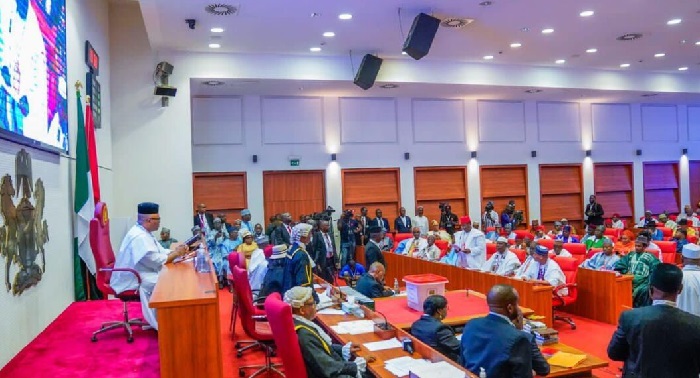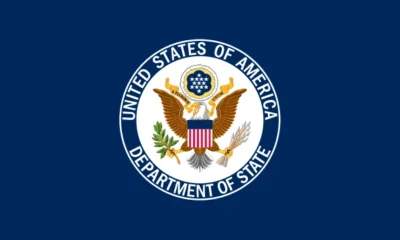News
Senate Approves Death Penalty For Drug Traffickers
The Nigerian Senate passed an amendment to the NDLEA Act, replacing life imprisonment with the death penalty for drug traffickers, amidst some controversy and opposition.

The Nigerian Senate passed an amendment to the NDLEA Act, replacing life imprisonment with the death penalty for drug traffickers, amidst some controversy and opposition.
Concurrently, they are reviewing judicial salaries to combat corruption and adjust to economic realities.
The Nigerian Senate has passed an amendment to the National Drug Law Enforcement Agency (NDLEA) Act, introducing the death penalty for drug traffickers.
VerseNews reports that the decision came during the third reading of the 2024 NDLEA Act (Amendment) Bill, where senators conducted a detailed, clause-by-clause review led by Senator Tahir Munguno, the Chairman of the Committees on Judiciary, Human Rights & Legal Matters and Drugs & Narcotics.
The pivotal change in the bill occurred under clause 11, initiated by the Senate Chief Whip and Senator Peter Nwebonyi, shifting the penalty for drug trafficking from life imprisonment to death.
Although the initial voice vote seemed to favor rejection, a second vote swayed the decision towards approval, led by the Deputy Senate President. This ruling sparked some controversy among the senators, with Senator Adams Oshiomhole particularly voicing his concerns over the rapid progression and finalization of the clause.
Simultaneously, the Senate has begun revisions on the salaries, allowances, and benefits of judicial office holders in Nigeria. This move aims to address bribery and corruption while ensuring judicial independence.
The related executive bill also received support and moved to the second reading. It proposes adjustments in judicial remuneration at both federal and state levels to better reflect current economic conditions. Some senators highlighted the necessity of similarly reviewing the remuneration across other sectors in light of the ongoing economic difficulties.
The judicial salary bill has now been forwarded to the Committee on Judiciary, Human Rights, and Legal Matters, which is expected to return with a report within four weeks.
























You must be logged in to post a comment Login